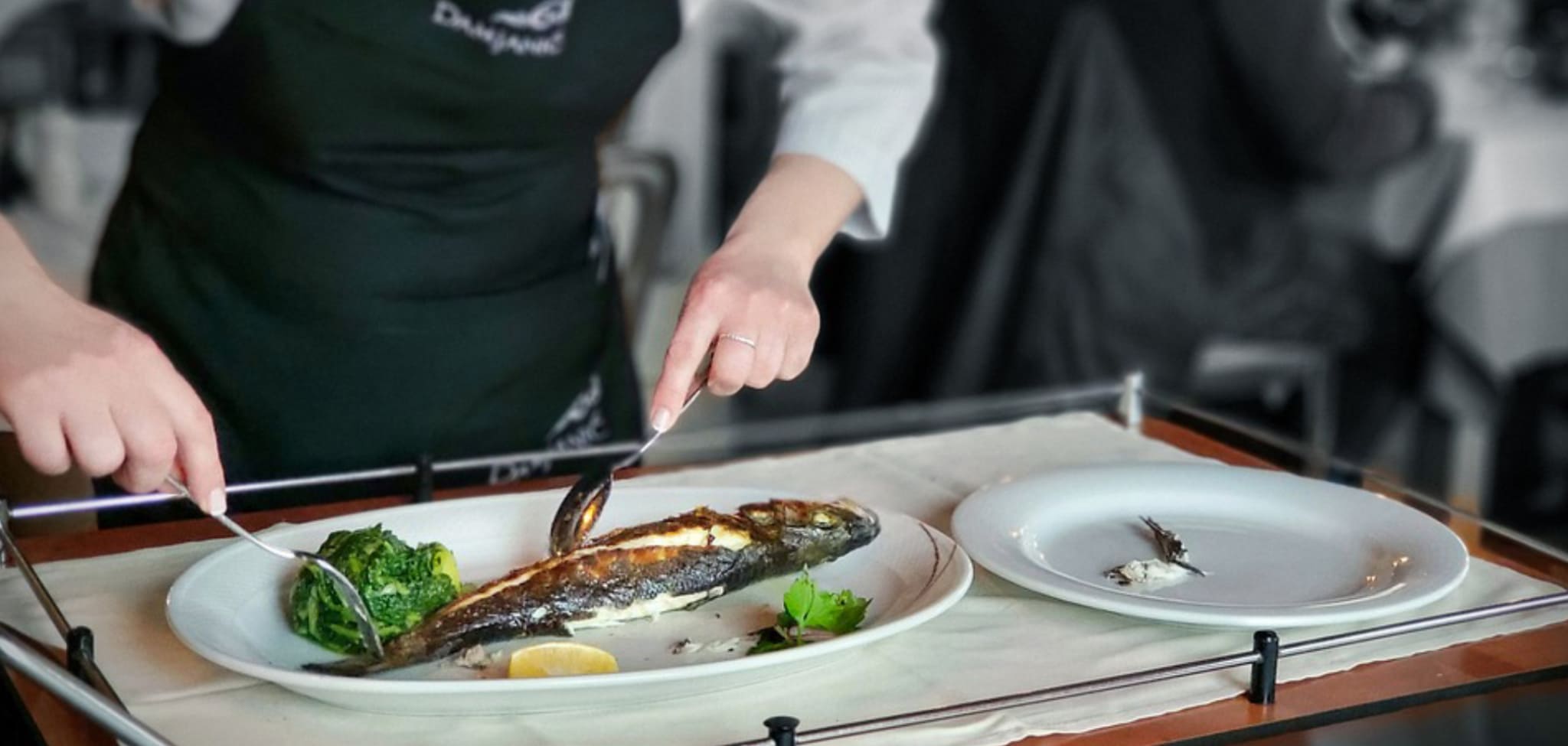How to Become a Cook: A Comprehensive Guide to Launch Your Culinary Career
Are you passionate about cooking and dreaming of a career as a professional chef? Becoming a cook is an exciting and rewarding path that allows you to showcase your culinary skills and create delicious meals for others to enjoy. In this comprehensive guide, we will explore the steps and requirements to become a cook, the different types of cooks, their responsibilities, and the potential career opportunities in the culinary industry. Whether you aspire to be a head chef, a pastry chef, or a personal chef, this guide will provide you with the essential information to kickstart your culinary journey.
Introduction: The Role of a Cook
The role of a cook, also commonly known as a chef, goes beyond simply preparing food. Cooks are the backbone of any kitchen, responsible for creating delicious meals while ensuring the smooth operation of the kitchen. They work in a variety of settings, including restaurants, hotels, hospitals, and other dining establishments. Cooks are not only skilled in culinary techniques but also demonstrate leadership, creativity, and a passion for delivering exceptional dining experiences.
As a cook, your primary responsibilities include preparing meals according to recipes and menu specifications, managing food inventory, ensuring food safety and hygiene standards are met, and supervising kitchen staff. You will collaborate with other cooks, sous chefs, and chefs to coordinate meal preparation and maintain the quality and consistency of the dishes served. The role of a cook requires a combination of technical skills, organizational abilities, and a strong work ethic.
Types of Cooks and Their Responsibilities
In the culinary industry, there are various types of cooks with different responsibilities and areas of expertise. Understanding these roles can help you determine which path aligns with your interests and aspirations. Let’s explore some of the common types of cooks and their specific responsibilities:
Head Chef or Executive Chef
The head chef, also known as the executive chef, is the top position in the kitchen hierarchy. As the culinary leader, they oversee the entire kitchen operation, including menu planning, recipe development, food preparation, and staff management. Head chefs are responsible for maintaining high culinary standards, ensuring the quality of the food served, and managing kitchen finances. They collaborate with other chefs and kitchen staff to create innovative and delectable dishes that meet the expectations of diners.
Sous Chef
The sous chef works closely with the head chef and assists in managing the kitchen. They are responsible for supervising and coordinating the kitchen staff, ensuring smooth operations during service, and maintaining the quality and consistency of the food. Sous chefs often step in as shift managers, handle inventory management, and contribute to menu planning. They play a crucial role in supporting the head chef and ensuring the efficient functioning of the kitchen.
Pastry Chef
If you have a passion for baking and creating delectable desserts, a career as a pastry chef may be the perfect fit for you. Pastry chefs specialize in creating a wide range of sweet treats, including pastries, cakes, cookies, and bread. They possess advanced knowledge of baking techniques, flavor combinations, and artistic presentation. Pastry chefs often work in bakeries, patisseries, and upscale restaurants, where they create visually stunning and mouthwatering desserts that satisfy customers’ sweet cravings.
Personal Chef
Personal chefs work directly with individual clients or families to provide customized meal preparation services. They cater to the unique dietary preferences and requirements of their clients, creating personalized menus and preparing meals in their clients’ homes. Personal chefs often work for high-profile individuals, busy families, or those with specific dietary needs. This role offers the opportunity to showcase your culinary skills while providing personalized and convenient dining experiences for your clients.
Private Chef
Similar to personal chefs, private chefs work exclusively for a specific individual or family. However, private chefs often work in more luxurious settings, such as private estates, yachts, or exclusive events. They are responsible for creating exceptional dining experiences tailored to the preferences and tastes of their employers. Private chefs may travel with their clients, preparing meals in different locations and ensuring a seamless culinary experience wherever they go.
Chef Consultant
Chef consultants provide their expertise and guidance to restaurants, hotels, and other food establishments. They offer advice on menu planning, kitchen design, staff training, and improving overall operations. Chef consultants bring their culinary knowledge and business acumen to help businesses optimize their performance and enhance the quality of their food and service. This role allows you to work independently and share your expertise with a wide range of clients.
Steps to Becoming a Cook
Becoming a cook requires a combination of practical experience, culinary knowledge, and hands-on training. While there is no one-size-fits-all path to becoming a cook, there are essential steps that can help you kickstart your culinary career. Let’s explore these steps in detail:
Gaining Experience in a Restaurant Kitchen
One of the best ways to start your journey as a cook is by gaining practical experience in a restaurant kitchen. Consider starting in an entry-level position, such as a dishwasher or kitchen assistant, to familiarize yourself with the kitchen environment and operations. This hands-on experience will provide you with insights into the fast-paced nature of the culinary industry and allow you to observe and learn from experienced chefs and cooks.
While working in a restaurant kitchen, make an effort to learn and master essential cooking techniques, such as knife skills, food preparation, and various cooking methods. Take the initiative to assist the chefs and cooks whenever possible, as this will not only help you gain valuable experience but also demonstrate your passion and dedication to your superiors.
Learning Cooking Techniques and Kitchen Operations
To become a skilled cook, it is essential to have a solid foundation in cooking techniques and an understanding of kitchen operations. While practical experience in a restaurant kitchen is valuable, formal culinary education can provide you with the necessary theoretical knowledge and a structured learning environment.
Consider enrolling in a culinary school or attending cooking classes to learn the fundamentals of cooking, culinary theory, and menu planning. Culinary programs often offer a combination of theoretical instruction and practical training, allowing you to develop your cooking skills under the guidance of experienced chefs.
Additionally, take advantage of industry resources such as cookbooks, online tutorials, and culinary workshops to enhance your culinary knowledge. Stay updated on emerging culinary trends and experiment with different ingredients and flavors to broaden your culinary repertoire.
Culinary School and Professional Training
While formal culinary education is not a mandatory requirement to become a cook, completing a culinary program can significantly enhance your career prospects and provide you with a competitive edge in the job market. Culinary schools offer a range of programs, including diplomas, certificates, and associate or bachelor’s degrees in culinary arts.
During your culinary education, you will learn advanced cooking techniques, food safety and sanitation practices, menu planning, and kitchen management skills. Many culinary programs also include hands-on training in fully equipped commercial kitchens, allowing you to refine your culinary skills and gain practical experience.
Furthermore, culinary schools often have partnerships with local restaurants or provide externship opportunities, allowing you to gain real-world experience and establish connections within the industry. These practical experiences can be instrumental in securing employment after completing your culinary education.
Advancing from Line Cook to Kitchen Management Positions
As you gain experience and refine your culinary skills, you can progress from an entry-level position, such as a line cook, to more advanced roles within the kitchen hierarchy. Line cooks are responsible for preparing specific dishes or working on specific stations in the kitchen. They work under the guidance of more experienced chefs and are essential in ensuring the smooth and efficient operation of the kitchen.
To advance in your culinary career, demonstrate your commitment, reliability, and willingness to learn. Take on additional responsibilities, such as supervising junior cooks, assisting with menu planning, or managing inventory. Seek opportunities to work in different types of kitchens or cuisines to broaden your culinary knowledge and skills.
Building a strong professional network within the culinary industry is also crucial for career advancement. Attend culinary events, join professional organizations, and participate in culinary competitions to connect with industry professionals and gain exposure in the culinary community.
Growing Demand for Cooks: Job Outlook and Salary
The culinary industry offers a wide range of career opportunities for aspiring cooks. According to the Bureau of Labor Statistics, the employment of chefs and head cooks is projected to grow 10 percent from 2020 to 2030, faster than the average for all occupations. The demand for cooks is driven by the increasing number of dining establishments, the growing popularity of international cuisines, and the rise in consumer demand for unique dining experiences.
The salary of a cook can vary depending on factors such as experience, location, and the type of establishment. According to the Bureau of Labor Statistics, the median annual wage for chefs and head cooks was $54,240 in May 2020. However, it is important to note that the salary range can vary significantly, with entry-level positions typically offering lower wages and more experienced and renowned chefs earning higher salaries.
Additionally, cooks in upscale restaurants or those with specialized culinary skills, such as pastry chefs or executive chefs, may command higher salaries. As you gain experience, develop your culinary expertise, and showcase your creativity and leadership skills, you can expect to earn a more competitive salary in the culinary industry.
Essential Skills and Qualities of a Successful Cook
To excel as a cook, there are certain skills and qualities that are essential for success in the culinary industry. Let’s explore some of these key skills and qualities:
Culinary Skills:
As a cook, you must possess a strong foundation in culinary skills, including proficiency in various cooking techniques, knowledge of flavor combinations, and the ability to create visually appealing dishes. Mastering knife skills, food preparation, and cooking methods such as grilling, sautéing, and baking are fundamental to becoming a skilled cook.
Creativity:
Cooks often have the opportunity to contribute to menu planning and create new dishes. Being creative allows you to experiment with flavors, textures, and presentation to develop unique and exciting culinary creations. A creative cook can elevate the dining experience and leave a lasting impression on diners.
Time Management and Organization:
The culinary industry is fast-paced and demanding, requiring cooks to manage multiple tasks simultaneously. Effective time management and organizational skills are essential to ensure that dishes are prepared and served in a timely manner. Being able to prioritize tasks, coordinate with other kitchen staff, and maintain a clean and organized work station are crucial for success in a busy kitchen environment.
Attention to Detail:
Cooks must pay meticulous attention to detail to ensure that dishes are prepared accurately and meet the desired standards. From following recipes and portioning ingredients to monitoring cooking times and seasoning, precision and attention to detail are essential to maintain consistency and deliver high-quality food.
Physical Endurance:
Working in a kitchen can be physically demanding, with long hours spent on your feet, lifting heavy pots and pans, and working in a hot and fast-paced environment. Physical endurance and stamina are necessary to withstand the physical demands of the job and maintain productivity throughout the workday.
Teamwork and Communication:
Cooks rarely work alone in the kitchen. Effective teamwork and communication skills are vital to ensure smooth collaboration with other cooks, chefs, and kitchen staff. Clear and concise communication helps prevent errors, maintain a harmonious work environment, and deliver exceptional dining experiences.
Adaptability and Resilience:
The culinary industry is dynamic and ever-changing, with unexpected challenges and last-minute changes being a common occurrence. Cooks must be adaptable, able to think on their feet, and remain calm under pressure. The ability to quickly adjust to new situations and find creative solutions is essential to thrive in a fast-paced kitchen environment.
Dress Code and Appearance for Cooks
In a professional kitchen, cooks are expected to adhere to a dress code and maintain a neat and professional appearance. While specific requirements may vary depending on the establishment, some common guidelines include:
- Clean and well-maintained chef’s coat or uniform
- Appropriate work pants or chef’s trousers
- Comfortable and slip-resistant kitchen shoes
- Hairnet, hat, or head covering to ensure food safety and hygiene
- Minimal jewelry and accessories to prevent contamination
- Clean and trimmed nails to adhere to food safety regulations
It is important to follow the dress code and appearance guidelines set by your employer to maintain a professional image and ensure compliance with food safety standards.
Cook Job Description: Duties and Responsibilities
The job description of a cook can vary depending on the establishment and the specific role within the kitchen hierarchy. However, there are common duties and responsibilities that cooks are typically expected to fulfill. Let’s explore some of these key responsibilities:
Setting up and Organizing Work Stations
Cooks are responsible for setting up their work stations before service begins. This includes organizing ingredients, utensils, and equipment, ensuring that everything is clean and properly stocked. By having a well-prepared work station, cooks can streamline their workflow and ensure a smooth operation during service.
Preparing Ingredients and Cooking Orders
Cooks are responsible for preparing ingredients according to recipes and menu specifications. This includes washing, peeling, and chopping vegetables, marinating meats, and measuring out ingredients. During service, cooks cook orders according to food safety and quality standards, ensuring that each dish is prepared to perfection.
Monitoring Food Orders and Ensuring Quality
In a fast-paced kitchen, cooks must efficiently manage multiple food orders at once. They must monitor cooking times, ensure that each dish is prepared correctly, and maintain consistency and quality throughout the service. Cooks must also pay attention to special dietary requirements or customer preferences to accommodate individual needs.
Sanitizing and Cleaning Work Stations
Maintaining cleanliness and hygiene in the kitchen is of utmost importance. Cooks are responsible for regularly sanitizing and cleaning their work stations, utensils, and equipment to prevent cross-contamination and ensure food safety. This includes following proper cleaning procedures, washing dishes, and adhering to food handling and storage guidelines.
Reordering Stock and Food Supplies
Cooks must monitor inventory levels and inform the kitchen manager or chef when supplies are running low. This includes ingredients, spices, and other food supplies necessary for meal preparation. By proactively reordering stock, cooks can ensure that the kitchen is well-stocked and ready to meet the demands of service.
Assisting Other Cooks and Team Members
In a collaborative kitchen environment, teamwork is crucial. Cooks must be willing to assist other team members whenever necessary, whether it’s helping with food preparation, offering guidance, or stepping in to support during busy periods. By working together, cooks can maintain a harmonious and efficient kitchen operation.
Career Paths and Specializations for Cooks
The culinary industry offers a wide range of career paths and specializations for cooks. Depending on your interests and aspirations, you can explore various avenues within the culinary field. Let’s take a closer look at some of the career paths and specializations available to cooks:
Head Chef and Executive Chef
For ambitious and experienced cooks, the role of head chef or executive chef is the pinnacle of the culinary profession. Head chefs oversee the entire kitchen operation, manage staff, create menus, and maintain high culinary standards. They bring their culinary expertise and leadership skills to ensure the success of the kitchen and deliver exceptional dining experiences.
Sous Chef and Kitchen Management Positions
Sous chefs work closely with the head chef and assist in managing the kitchen. They supervise kitchen staff, coordinate meal preparation, and ensure the smooth operation of the kitchen during service. Sous chefs often have the opportunity to contribute to menu planning, staff training, and overall kitchen management. This role is an excellent stepping stone for aspiring head chefs and provides valuable leadership experience.
Pastry Chef and Baking Specializations
If you have a sweet tooth and a passion for baking, a career as a pastry chef may be the perfect fit. Pastry chefs specialize in creating a variety of delectable desserts, pastries, and bread. They possess advanced knowledge of baking techniques, flavor combinations, and artistic presentation. Pastry chefs often work in bakeries, patisseries, hotels, or upscale restaurants, showcasing their creativity and skills in creating visually stunning and mouthwatering desserts.
Personal Chef and Private Chef
Personal chefs and private chefs provide customized meal preparation services to individual clients or families. They cater to specific dietary preferences and create personalized menus tailored to their clients’ needs. Personal chefs often work in clients’ homes, preparing meals on a regular basis. Private chefs, on the other hand, work exclusively for a specific individual or family, providing gourmet dining experiences in private residences, yachts, or exclusive events.
Chef Consultant and Entrepreneurship
Chef consultants offer their expertise and guidance to restaurants, hotels, and food establishments. They provide advice on menu planning, kitchen design, staff training, and overall operations. Chef consultants often work independently, collaborating with various clients to optimize their performance and enhance the quality of their food and service. This role allows experienced cooks to share their culinary knowledge and entrepreneurial spirit.
Time and Effort: How Long Does It Take to Become a Cook?
The time required to become a cook can vary depending on individual circumstances, educational choices, and career goals. While formal culinary education is not mandatory, completing a culinary program can provide a solid foundation and accelerate your culinary career. Culinary programs typically range from a few months to two years, depending on the level of certification or degree pursued.
In addition to formal education, gaining practical experience through internships, apprenticeships, or entry-level positions in a restaurant kitchen is essential to develop your culinary skills and industry knowledge. It is during this hands-on training that you refine your techniques, learn from experienced professionals, and build a professional network.
The journey to becoming a skilled and successful cook is ongoing. It requires dedication, perseverance, and a commitment to continuous learning. As you gain experience, refine your skills, and demonstrate your passion for the culinary arts, you can progress to more advanced roles within the kitchen hierarchy and explore specialized areas such as pastry, management, or entrepreneurship.
Conclusion: Pursue Your Passion for Cooking
Becoming a cook is an exciting and fulfilling career path for those with a passion for cooking and a desire to create memorable dining experiences. Whether you aspire to become a head chef, a pastry chef, or a personal chef, the culinary industry offers a multitude of opportunities for growth and creativity.
By gaining practical experience, pursuing culinary education, and demonstrating essential skills and qualities, you can embark on a successful culinary career. Remember to stay updated on industry trends, continuously refine your culinary skills, and build a strong professional network to enhance your career prospects.
So, if you have a love for food, a creative flair, and a dedication to delivering exceptional culinary experiences, don your chef’s coat, sharpen your knives, and embark on the journey to becoming a cook. The kitchen awaits your culinary talents!
RECENT POSTS
History of Baseball
History of Baseball: From Its Origins to Modern TimesBaseball is one of the most popular sports in the United States, with millions of fans tuning in to watch games each year. The sport has a [...]
Hunting Falconry
History of Hunting Falconry: An Overview of Falconry's Evolution and Significance Are you interested in learning about the ancient practice of hunting with trained birds of prey? Falconry has been practiced for thousands of [...]
Hunting Destinations in 2024
Hunting Destinations in 2024: Top Picks for Avid Hunters Are you looking for exciting hunting destinations to explore in 2024? Whether you're a seasoned hunter or just starting, there are plenty of options available [...]
History of hunting dogs
Explore the History and Significance of Hunting Dogs: A Comprehensive Guide If you're a hunting enthusiast, then you know the importance of having a reliable hunting dog by your side. Hunting dogs have been [...]
Hunting as a Hobby
Hunting as a Hobby: An Overview Hunting is a popular outdoor activity enjoyed by millions of people worldwide. While some hunt for food, others do it as a hobby. Hunting as a hobby can [...]










